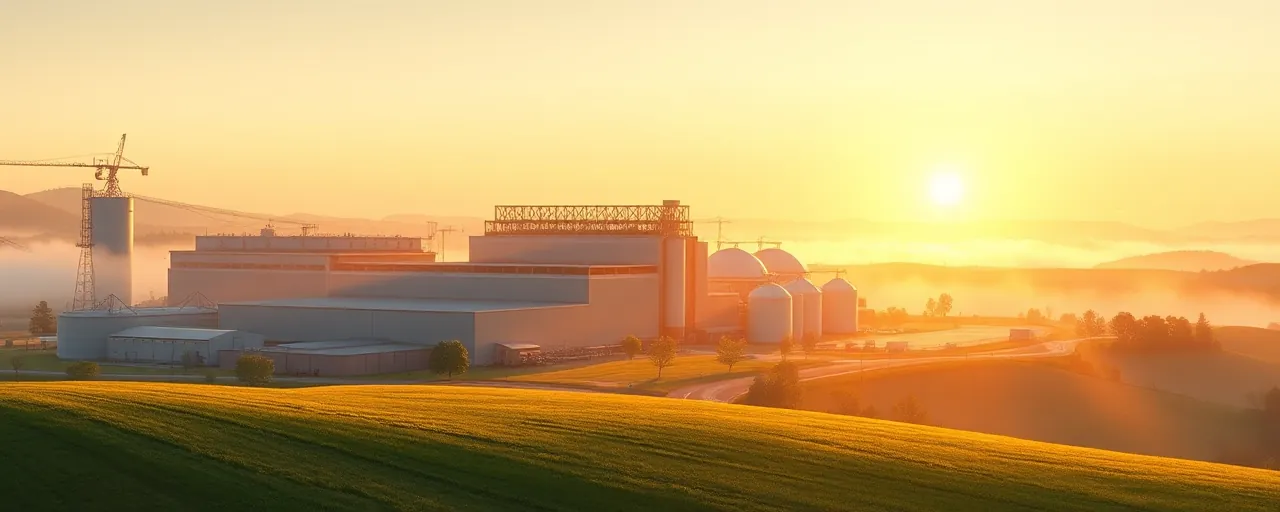A Triumph of Enterprise in the Mohawk Valley
Chobani’s decision to plunk down $1.2 billion for a sprawling 1.4 million-square-foot dairy plant in Rome, New York, isn’t just a business move; it’s a thunderous endorsement of American ingenuity and the enduring power of free markets. This isn’t some government-orchestrated scheme propped up by endless taxpayer dollars. It’s a private company, founded by an immigrant entrepreneur, betting big on the Mohawk Valley’s workers, farmers, and future. The plant, set to churn out over a billion pounds of yogurt annually, will create more than 1,000 jobs and nearly double Chobani’s workforce in the state. That’s real economic revival, not a press release fantasy.
Hamdi Ulukaya, Chobani’s founder, didn’t need a government playbook to see the potential in Upstate New York. He saw a skilled workforce, including veterans and college graduates, and a region hungry for opportunity. The plant’s location at Griffiss Business and Technology Park, a former Air Force base, taps into a community ready to rebuild its economic backbone. This is what happens when businesses, not bureaucrats, call the shots: real jobs, real growth, and real hope for families in Oneida County.
Yet, predictably, some are quick to credit Albany’s political machine for this win. They point to the $73 million in tax credits and $23 million in infrastructure grants dangled by Empire State Development as the magic wand that made it all possible. Let’s be clear: those incentives didn’t spark Chobani’s ambition. They’re a drop in the bucket compared to the company’s billion-dollar gamble. This project succeeds because of private vision, not public purse strings.
What’s at stake here is a broader truth: when government steps back and lets businesses thrive, communities flourish. Chobani’s expansion is a case study in what happens when entrepreneurs are free to innovate, invest, and build without suffocating red tape or overzealous regulators. It’s a model for how America can reclaim its economic edge.
Dairy Farmers Win When Markets Thrive
New York’s dairy farmers, the unsung heroes of this story, stand to gain massively. Chobani’s plant will process 12 million pounds of milk daily, boosting the company’s annual milk purchases from one billion to six billion pounds. That’s a lifeline for the state’s nearly 3,000 dairy farms, which already produce 16.1 billion pounds of milk a year. This isn’t just about yogurt; it’s about securing a future for family farms that have weathered volatile prices and shrinking margins.
Large-scale processing plants like Chobani’s create a ripple effect. In Pennsylvania, every nine dairy cows support one job, and each cow pumps nearly $14,000 into the local economy. New York’s farmers will see similar benefits as Chobani’s demand for milk fuels feed suppliers, equipment dealers, and small businesses. Unlike top-down government programs that often miss the mark, this market-driven boost delivers tangible results. Farmers get stability, communities get jobs, and consumers get high-quality products.
Some argue that state investments, like Governor Hochul’s $55 million for sustainable dairy practices, are the real catalysts. But let’s not kid ourselves. Farmers don’t need Albany’s blessing to innovate; they need buyers like Chobani who value their product and pay for it. Handouts for climate-resilient practices sound noble, but they often come with strings attached, burdening farmers with compliance costs. Chobani’s investment, by contrast, is a straightforward deal: supply the milk, get paid, grow your business.
The Myth of Government as Economic Savior
Albany’s cheerleaders insist this project proves the genius of state-led economic planning. They tout programs like FAST NY and the Excelsior Jobs Program as indispensable tools for luring big players like Chobani. But history tells a different story. State incentives, from New York to Texas, often pad corporate bottom lines without delivering promised spillovers. In 2014, states spent billions on subsidies, yet long-term economic gains remained elusive. Chobani didn’t pick Rome because of a $73 million tax carrot; it chose the site for its workforce, location, and access to East Coast markets.
The real risk is when government picks winners and losers. Programs like Nourish NY, which funnels local food to underserved communities, sound heartwarming but often devolve into bureaucratic bloat. Chobani’s approach—partnering directly with farmers and community organizations—cuts through the red tape. It’s lean, effective, and respects the people doing the actual work. Contrast that with Albany’s penchant for layering on regulations, from labor mandates to environmental rules, that drive up costs and scare off investment.
Workforce development is another area where private initiative outshines public meddling. Chobani’s pledge to train underserved populations, including veterans and those without college degrees, aligns with proven strategies like apprenticeships and sectoral partnerships. Programs like ON-RAMP in New York show what’s possible when businesses, not government, lead the charge. Bureaucrats might fund training centers, but companies like Chobani create the jobs that make training matter.
A Blueprint for America’s Revival
Chobani’s Rome plant is more than a local success; it’s a blueprint for how America can rebuild its economic core. Upstate New York, once battered by industrial decline, is clawing its way back through projects like this. The region’s unemployment rates are below national averages, and per capita income growth is outpacing the country. Why? Because businesses see value in its skilled workers, affordable housing, and proximity to markets—not because Albany sprinkled some grant money.
Nationally, the natural food sector is booming, with organic dairy sales up 9.8% in 2024 and the healthy foods market projected to hit $2.26 trillion by 2035. Companies like Chobani are riding this wave, proving that consumer demand, not government fiat, drives innovation. Policymakers in Washington should take note: cut taxes, slash regulations, and let businesses do what they do best. That’s the recipe for growth, not another bloated federal program.
As Chobani’s plant rises in Rome, it stands as a testament to what’s possible when free markets lead. This isn’t about government saving the day; it’s about a company betting on America’s workers and farmers. Let’s hope leaders in Albany and beyond learn the lesson: get out of the way, and prosperity follows.
